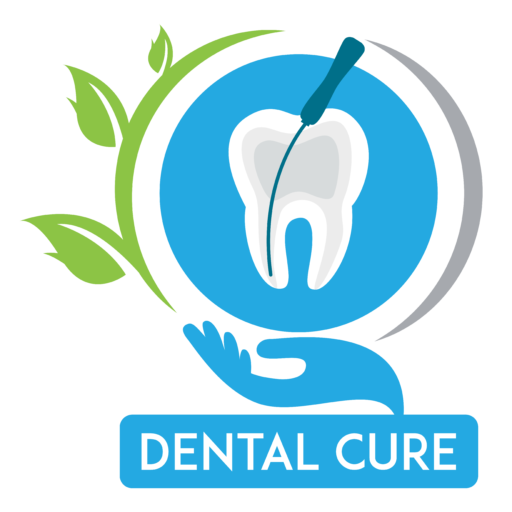Dental Preventive Care
Proper oral hygiene is crucial for a person’s overall health. Dental preventive treatment is vital in preventing minor dental problems such as cavities, gum diseases, and tooth loss.
Dental Prevention: Why It Matters
- Overall Health Benefits: Adequate oral health can help reduce systemic diseases like heart disease, diabetes, and respiratory infections.
- Cost Savings: Disease prevention via dental care is cheaper than treating dental diseases that result from carelessness.
- Long-term Oral Health: Regular preventive check-ups help preserve healthy teeth and gums, thus preventing dental emergencies and complicated treatments.
Daily Dental Hygiene Practices
- Brushing Technique: Apply soft-bristled brushes and fluoride toothpaste. Brush your teeth with fluoride toothpaste at least twice daily for two minutes, using gentle circular movements.
- Flossing: Floss each day between the teeth to remove plaque and food particles that brushing alone may not remove.
- Mouthwash: Rinse with antimicrobial mouthwash to kill bacteria and freshen your breath.
- Tongue Cleaning: Scrape the tongue or use the back of your toothbrush to clean it, reducing bacteria and eventually getting rid of the morning breath.
Diet and Oral Health
- Limit Sugary Foods and Beverages: The consumption of too much sugar may result in tooth decay and cavities. Select a healthy snack, like fruits, veggies, and nuts.
- Drink Plenty of Water: Water will be there to remove food fragments and bacteria, leading to the stimulation of saliva, the neutralisation of acids, and the strengthening of enamel.
- Avoid Acidic Foods and Drinks: The erosion of tooth enamel can be caused by sour foods and drinks like citrus fruits and soft drinks. This can cause decay and lead to sensitivity.
- Calcium-Rich Foods: Add calcium-rich foods such as milk and dairy products, leafy greens, and fortified foods to strengthen teeth and bones.
Routine dental check-ups and cleanings
- Frequency: Find time to see your dentist for a check-up and cleaning once every six months or as directed by your dental professional.
- Comprehensive Examination: During the visit, your dentist will screen your teeth, gums, and all oral tissues to indicate decay, discompose, or unusual malformations.
- Professional Cleaning: Dental hygienists will scale off any tartar build-up, polish the teeth and fluoride treatment to prevent tooth decay.
- Early Detection: Dental examinations that are carried out regularly allow the problem to be noticed early and addressed before it grows into a more significant matter.
Dental Sealants and Fluoride Preparations
- Sealants: Dental sealants are acceptable, and plastic laminates are laid on the chewing surfaces of molars and premolars to prevent plaque-forming bacteria from accumulating.
- Fluoride Treatments: Fluoride is a mineral which helps in tooth enamel conservation and also safeguards one from cavities. Many paediatricians and dentists suggest using professional fluoride treatments for kids and adults who are more likely to suffer tooth decay.
Mouthguards for Protection
- Sports Guards: In sports, the right-fitted mouthguards prevent teeth from broken or injured by sports-related injury or trauma.
- Night Guards: Night guards help stop the damage associated with bruxism (teeth grinding) and temporomandibular joint (TMJ) disorders because they act as a cushion between the teeth and, thus, their protection during sleep.
The role of oral health education and awareness are important
- Patient Education: Dentists and dental hygienists are significant figures responsible for educating patients about the correct way of taking care of their oral health, diet and the necessity of preventive health check-ups.
- Community Outreach: Healthcare providers engage in community service by sensitising people on oral health issues, organising free screenings and providing preventive care services to communities without resources.
- Lifelong Learning: Dental specialists constantly improve their knowledge of dental hygiene through education and training to ensure they are always in contact with the latest techniques and technologies in dentistry.
Specific Concerns for Children and Older Adults
- Children: Start oral care early by using damp cloths to wipe infants’ gums and then use a soft-bristled toothbrush once teeth appear. Monitor the children’s brushing and flossing until they can do it alone.
- Seniors: The advancing age can lead to the development of oral health issues like dry mouth, gum disease, and tooth loss. Seniors are advised to regularly visit the dentist and develop good oral hygiene practices to avoid oral health problems and maintain their overall health.
Prevalent Myths and Facts about Dental Preventive Care
- Myth: Sugar is the single cause of cavities
Fact: While sugar is a significant culprit in cavity formation, other factors like poor oral hygiene, acidic foods, and genetics also contribute to dental caries development.
- Myth: When Gums Bleed, They’re Healthy
Fact: Periodontitis can be found without apparent manifestations like gum bleeding. Regular dental check-ups keep gum disease in the early stages under control.
- Myth: I don’t need to floss when I brush thoroughly
Fact: Brushing alone cannot reach the areas between teeth and against the gumline where undesired material collects. Flossing is the key to removing plaque from that region.
- Myth: Dental sealants are only for children
Fact: However, adults don’t benefit less than from applications of sealants, particularly on deep grooves and pits.
Conclusion
Preventive dental care is the basis of good oral health. If you embrace proper oral hygiene techniques, follow a healthy diet, schedule regular dental checkups, and take preventative measures, you can have a healthy smile for a lifetime. Prevention is always worth more than cure.
